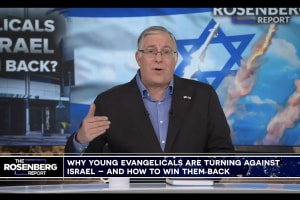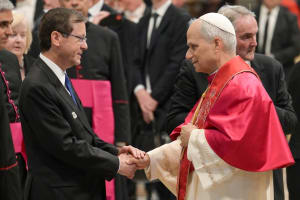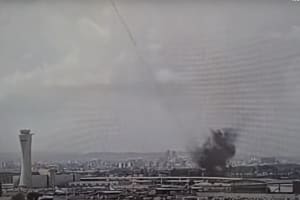Lebanon ceasefire soon? ‘There is a shot’ says US envoy, but Hezbollah & France continue to reject Israeli demands
Despite US confidence, both sides continue to hold to demands unacceptable to the other side

With the Biden administration pushing for a last foreign policy success, and the Trump team seeking to end wars before President-elect Donald Trump takes office in January, efforts to reach a diplomatic agreement to end the fighting in Lebanon have advanced rapidly in recent weeks.
However, despite U.S. envoy Amos Hochstein on Tuesday saying he believes there is a shot at “securing a ceasefire deal in Lebanon soon,” recent comments by Hezbollah, Lebanese officials and the French foreign minister have dampened the hopes again.
The hopeful comments from Hochstein, who is leading the U.S. mediation efforts, came after Israel’s Strategic Affairs Minister Ron Dermer visited the U.S. on Monday to speak with senior foreign policy officials.
Dermer, who is seen as a kind of “special foreign minister” and a close Netanyahu confidant, met with Hochstein, White House Coordinator for the Middle East Brett McGurk and National Security Advisor Jake Sullivan.
The meetings were “productive,” an official told the Axios new site, noting that the parties reached near agreement on resolving most gaps in the wording of a truce agreement. They also discussed a separate U.S. commitment to permit Israel to take military action if the Lebanese Army or UN peacekeepers fail again to prevent Hezbollah from smuggling weapons or reestablishing positions near the border.
“It is not quite a done deal, but close to it,” a U.S. official said.
Dermer also met with Trump and his son-in-law Jared Kushner, telling them Israel wants to reach a ceasefire in Lebanon soon, according to the Washington Post.
“There is an understanding that Israel will give something to Trump... that in January there will be an understanding regarding Lebanon,” a source told the newspaper.
Following Dermer’s meetings, Israel’s Channel 12 reported on Tuesday that Israel and the U.S. sent a draft outline to Lebanon and are waiting for a response.
The next day, Israel's new defense minister, Israel Katz, emphasized that Israel would not accept any agreement unless it included Hezbollah's withdrawal and disarmament, as stipulated in UN Resolution 1701. While this resolution forms the basis for ceasefire talks, it has not yet been explicitly mentioned as an official Israeli war objective.
“We will not agree to just any cease-fires, we will not take our foot off the gas, and we will not accept any agreement that does not include the achievement of the war goals,” Katz said while visiting the IDF Northern Command.
This includes “the disarmament of Hezbollah, its withdrawal beyond the Litani [River], and creating the conditions for the residents of the north to return to their homes in safety,” Katz added while noting that Israel must receive the right to enforce the agreement militarily, if necessary.
However, French Foreign Minister Jean-Noel Barrot rejected this stipulation on Wednesday.
“That is not compatible with the sovereignty of a strong country,” Barrot told the parliament about a week after his visit to Israel.
According to The Jerusalem Post, several diplomats believe it is not likely Hezbollah would accept this Israeli demand.
Meanwhile, Lebanese Parliament Speaker Nabih Berri, who is leading the negotiations on behalf of Hezbollah, said he hasn’t received any new proposals recently.
“What is on the table is only [United Nations] Resolution 1701 and its provisions, which must be implemented and adhered to by both sides, not by the Lebanese side alone,” Berri told the Saudi Asharq Al-Awsat newspaper.
In an interview with Al Jazeera, Berri’s political advisor, Ali Hassan Khalil, reiterated that Israeli freedom of action in Lebanon would not be accepted.
“The wording of the international resolution (1701) is clear, to prevent Israeli aggression, to prevent Israeli violations and any violation on land, sea or air is a violation of the content of this resolution.”
Taking an even stronger position, Hezbollah politician Hassan Fadlallah on Wednesday said that Israel must stop the fighting before discussions about steps the Lebanese state should take.
According to the Hezbollah-affiliated newspaper al-Akhbar, the terror group, Berri and caretaker prime minister Najib Mikati agreed on three guiding principles for the negotiations with Israel.
First, a complete and immediate end to the war, with no temporary truces or intermediary phases. Second, the return of displaced Lebanese to their homes within hours of an Israeli withdrawal. Third, the exclusion of external parties from the rehabilitation of southern Lebanon.
With these conditions in place and Israel's demands simultaneously rejected, the likelihood of a diplomatic resolution remains uncertain.

The All Israel News Staff is a team of journalists in Israel.













